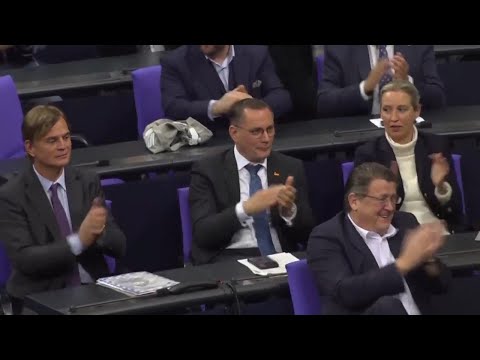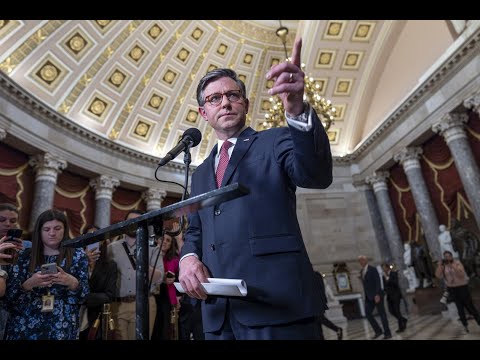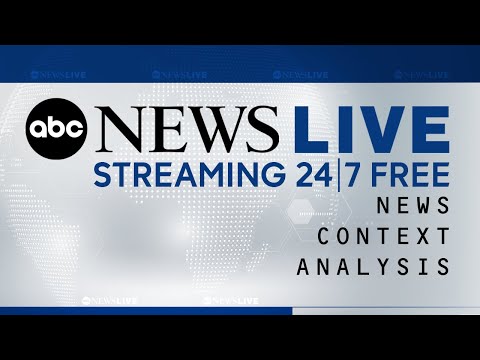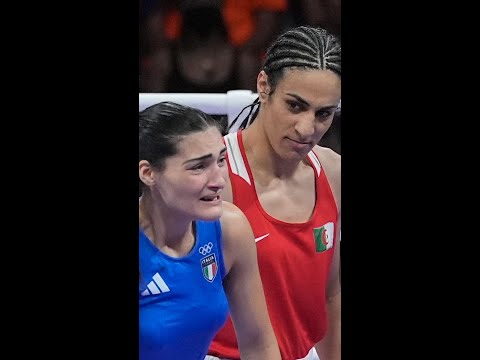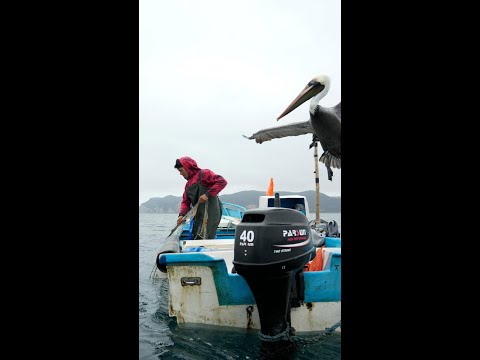(30 Jan 2025)
RESTRICTION SUMMARY:
ASSOCIATED PRESS
Berlin, Germany – 29 January 2025
1. Various of Friedrich Merz, Christian Democratic Union leader and candidate for chancellor, speaking in parliament
2. Alternative for Germany (AfD) lawmakers, among them Alice Weidel (right) and Tino Chrupalla (centre), both AfD co-leaders, applauding after results of vote is announced
3. Merz seated after announcement of vote
ASSOCIATED PRESS
Berlin, Germany – 30 January 2025
4. SOUNDBITE (German) Prof. Dr. Wolfgang Schroeder, political analyst:
"That is the breach of the informal firewall. It is a blatant policy of mistrust on the part of Merz, who only a few weeks ago said that no informal agreements or support or acceptance of support should be practised with the AfD either."
ASSOCIATED PRESS
Berlin, Germany – 29 January 2025
5. Various of Merz seated
ASSOCIATED PRESS
Berlin, Germany – 30 January 2025
6. SOUNDBITE (German) Prof. Dr. Wolfgang Schroeder, political analyst:
"And in that sense, this is a toxic intervention by Merz and the CDU that will have a long-term or let’s say medium-term impact on the culture of the German parliament and that will also have a negative impact on the Union in the medium-term sense."
ASSOCIATED PRESS
Berlin, Germany – 29 January 2025
7. Various of Merz in parliament
ASSOCIATED PRESS
Berlin, Germany – 30 January 2025
8. SOUNDBITE (German) Prof. Dr. Wolfgang Schroeder, political analyst:
"In terms of the election, this could pay off positively for the Union. You can assume that. But in terms of the resilience of the democratic centre’s ability to cooperate, it is fatal."
ASSOCIATED PRESS
Berlin, Germany – 29 January 2025
9. Wide of parliament session
10. AfD lawmakers including Weidel and Chrupalla reacting after vote
11. Wide of German parliament building
12. Close of German and European Union flags
STORYLINE:
Germany’s parliament on Wednesday has narrowly approved a call by Chancellor Olaf Scholz’s main challenger Friedrich Merz to turn back many more migrants at the country’s borders, with the help of a far-right part — a move that has drawn strong criticism of the front-runner in the campaign for next month’s election.
Merz, whose party leads the polls, put migration in the spotlight following a knife attack a week ago in the Bavarian city of Aschaffenburg.
Merz wants to pile pressure on the governing parties but has drawn accusations, which he rejects, that he’s breaking a consensus to shun the far-right Alternative for Germany, or AfD.
Merz’s nonbinding motion calling for tougher migration policies passed by 348 votes to 345, with 10 abstentions, after a combination of opposition parties backed it — including 75 AfD lawmakers.
Far-right lawmakers applauded the result, while the parliamentary leader of Scholz’s party, Rolf Mützenich, said Merz’s Union bloc had “broken out of the political centre.”
"This is a toxic intervention by Merz and the CDU that will have a long-term or let’s say medium-term impact on the culture of the German parliament and that will also have a negative impact on the Union in the medium-term sense,", Wolfgang Schroeder, a political science professor at the Berlin Social Science Centre, told The Associated Press.
"In terms of the election, this could pay off positively for the Union. You can assume that. But in terms of the resilience of the democratic centre’s ability to cooperate, it is fatal," Schroeder added.
Germans will elect a new parliament on February 23 after Scholz’s three-party governing coalition collapsed.
Find out more about AP Archive: http://www.aparchive.com/HowWeWork
Twitter: https://twitter.com/AP_Archive
Facebook: https://www.facebook.com/APArchives
Instagram: https://www.instagram.com/APNews/
You can license this story through AP Archive: http://www.aparchive.com/metadata/youtube/6a054e34cab14f06806a7b459377fece
Author: AP Archive
Go to Source
News post in February 4, 2025, 3:04 pm.
Visit Our Sponsor’s:
News Post In – News

